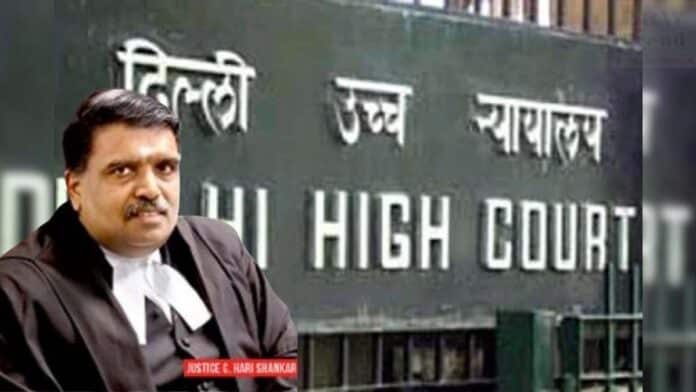Cautioning that baseless targeting of doctors is bound to prejudice public interest, the Delhi High Court has set aside the temporary removal of a radiologist’s name from the medical register following the death of a 21-year-old woman patient.
Justice C Hari Shankar emphasised that while callous negligence has to be strictly handled as a “scalpel cannot be wielded by a shaking hand”, striking off a doctor’s name from the Indian Medical Register not only results in the “civil death” of his career, but also has wide-reaching familial and societal ramifications.
The judge, dealing with the radiologist’s petition against a Medical Council of India (MCI) order directing the removal of his name for three months, said after the council dropped the allegation of medical negligence against him and he was not accused of any other allegation, the punishment on the count of falsification of records cannot be sustained in law.
“While it is true that … conduct which falls short of even that minimum medical standard or displays callous negligence to the welfare of a patient has to be dealt with severely, it is equally true that the scalpel cannot be wielded by a shaking hand. Baseless targeting of doctors, unmindful of the consequences, is bound, in the ultimate eventuate, to seriously prejudice public interest,” the court said in an order passed on July 3.
“The MCI has, quite fairly, discharged the petitioner of the charge of medical negligence. Having so held, the MCI could not proceed, nonetheless, to punish the petitioner for falsification of records,” it added.
The deceased woman was stated to have suffered an abortion in May 2007 and was diagnosed with remains of the earlier live foetus in her uterus.
To avert any life-threatening infection, a surgical procedure was performed on her by another doctor, with the petitioner providing the necessary assistance, but she died the same day.
In its order, the court noted that prior to the MCI passing the order in March 2010, the petitioner was never charged with falsification of records and the only allegation against him was that he contributed to the unfortunate death of the woman, which was found to be without substance.
It further stated that there are no observations in the MCI order to show which record was falsified and that the petitioner ought to have been put to notice before arriving at an adverse conclusion.
Also Read
“This is an extremely unhappy situation. Striking off, from the Indian Medical Register, of the name of a doctor partakes of the character of a civil death insofar as the professional career of the doctor is concerned. The familial and societal ramifications of such a decision, which is bound to garner publicity, are also far and wide reaching,” the court said.
“Where the falsification takes place in connection with the treatment of a patient, especially where the patient is dead, the seriousness of the misdemeanour increases manifold…. The order must be precise and exact regarding the record which was falsified, the manner in which it was falsified at the time when such falsification took place,” it added.
Stating that falsification of records is an extremely serious matter involving criminal intent, the court asserted that such a finding cannot be lightly arrived at.
“The impugned order dated March 20, 2010 cannot, therefore, sustain on facts or in law. It is, accordingly, set aside,” it ruled.




